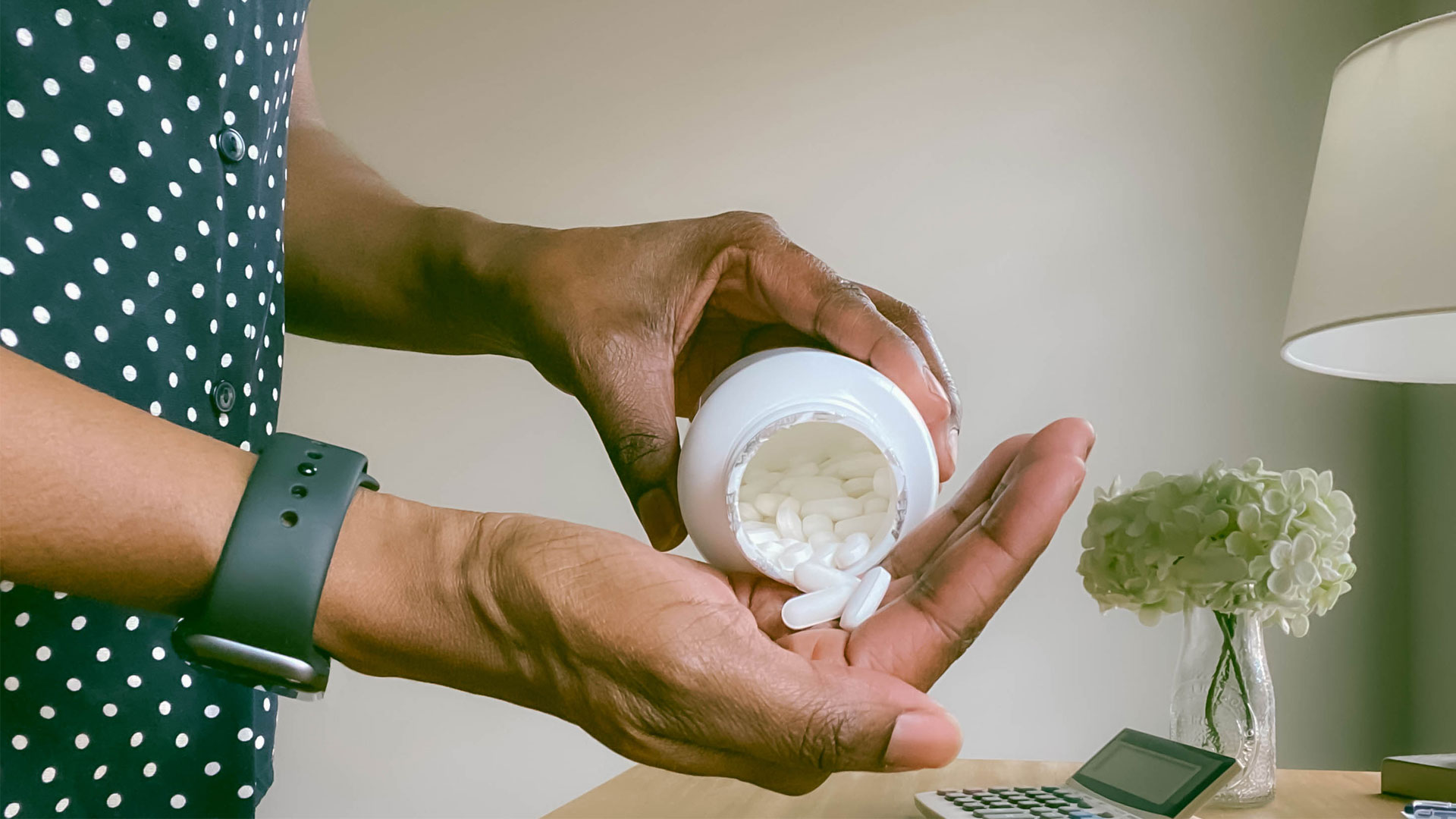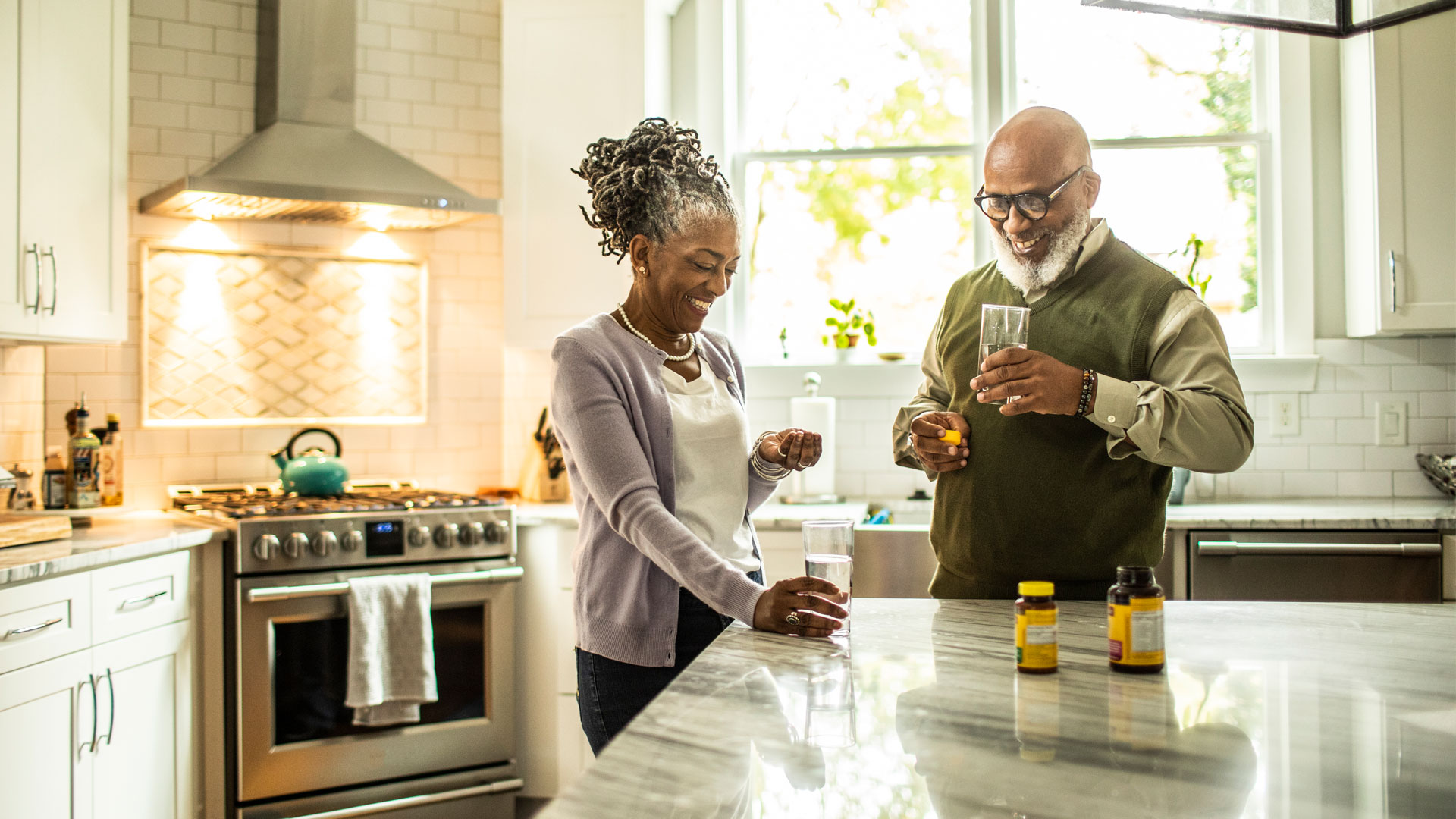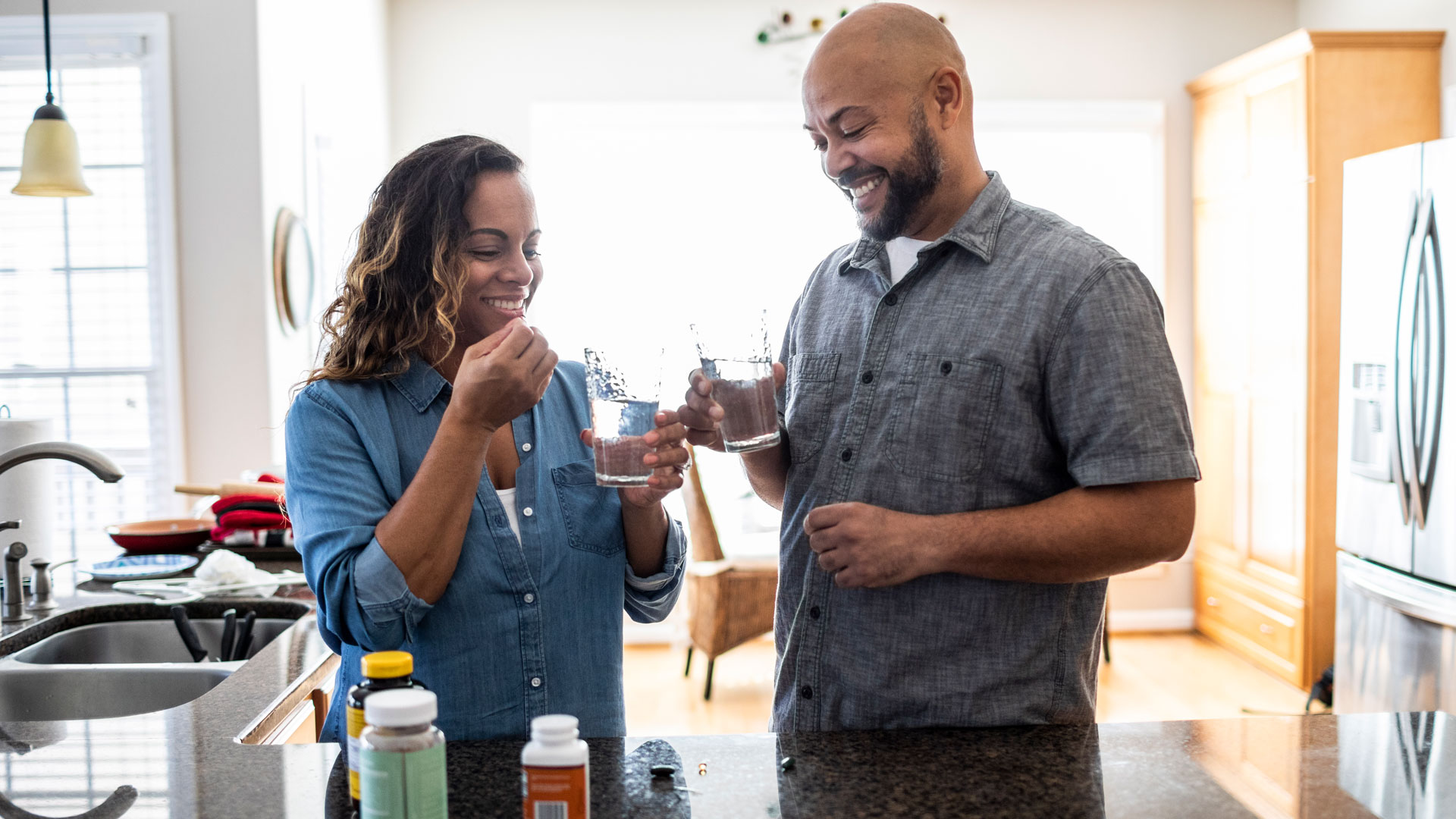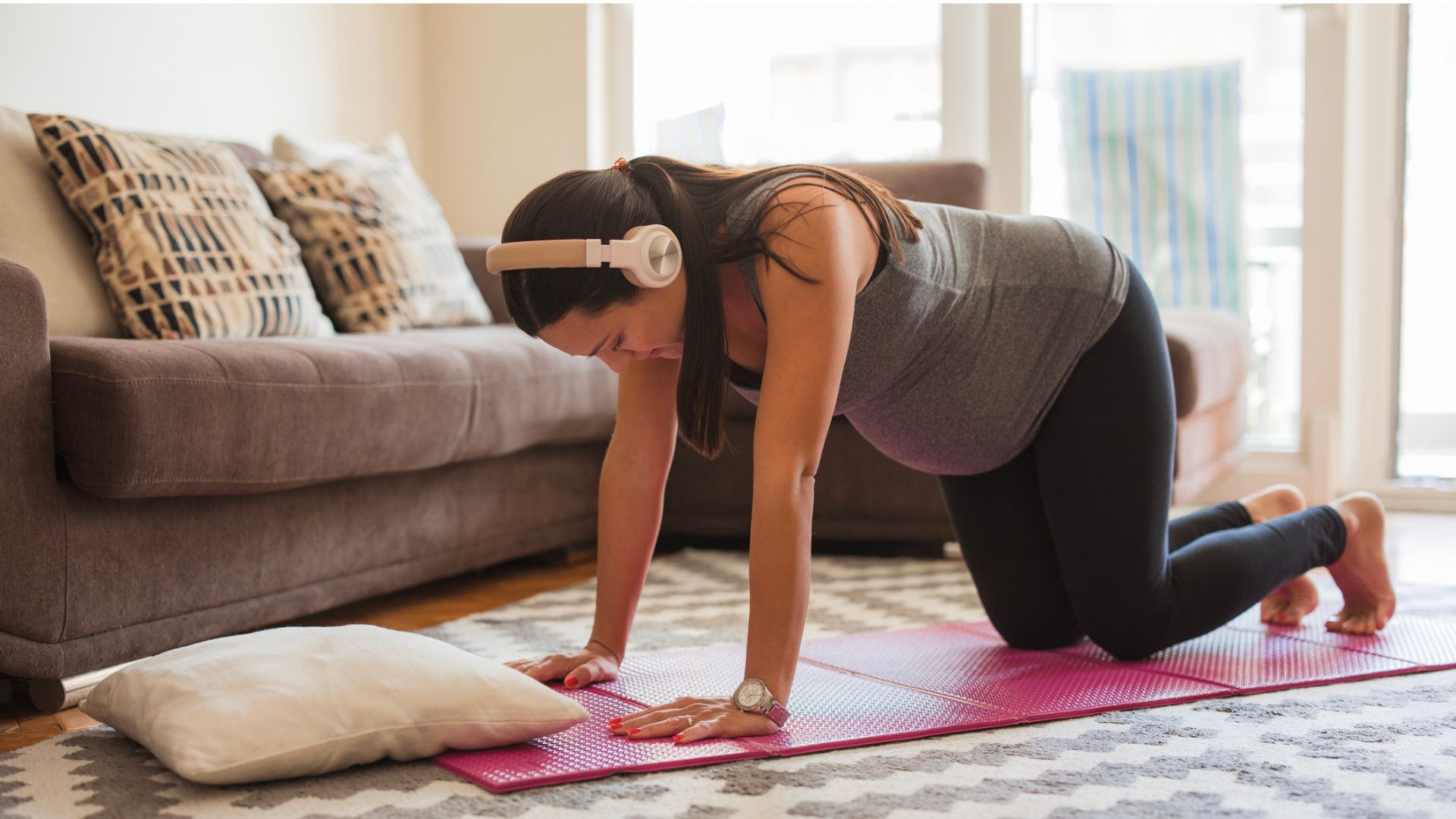What is the best time to take vitamin D?
What is the best time to take vitamin D? We look into the sunshine vitamin and when you may need it

You may not realize that for most of us, there is actually a best time to take vitamin D. This is due to the fact that throughout most of the world, we experience a fluctuation in climate and the amount of sunlight we are exposed to throughout the year. As vitamin D is known as the ‘sunshine vitamin’ it is important that we get enough exposure to UV radiation to ensure that we don’t develop deficiencies, as the sun is our main source of vitamin D.
Vitamin D isn’t just important in its own right, it also helps us to absorb calcium and phosphorus, which are the most abundant minerals found in our skeletons. If we have a vitamin D deficiency we are also putting ourselves at risk for diseases related to calcium and phosphorus deficiency, which primarily impact our bone health.
If you’re worried about getting enough vitamin D through the colder months, you might want to start taking the best vitamin D supplements to support your health.

What is vitamin D?
Vitamin D is a fat-soluble vitamin important for the absorption of calcium and phosphate, which means that it is a vital component for the maintenance of good bone health.
Dora Walsh, a registered dietitian for Berocca Immuno, explains that vitamin D can be hard to obtain through dietary sources. “It's very hard to get vitamin D from food as there are only a few foods that are rich in vitamin D such as oily fish, butter, eggs, and sun-dried mushrooms,” she explains. “Therefore, supplementing vitamin D is something to consider. If we are deficient in vitamin D there is a risk that this would naturally weaken our immune system.”
A study in Vnitrní Lékarství, a Czech community medical journal, indicates that vitamin D is of particular importance for children and adolescents whose bones are still growing, and older people who are at risk of osteoporosis (thinning bones). Vitamin D is also used by the body to help repair damage, reduce inflammation and assist in processes such as cell growth and immune function.
Dr. Liakas, a cosmetic surgeon and the medical director of the Harley Street medical and cosmetic clinic, Vie Aesthetics, tells us more about what vitamin D is good for. “Vitamin D is a fat-soluble vitamin that is involved in many essential body functions,” he says. “There are 2 forms of vitamin D in our diet and supplements: vitamin D2; which is interestingly found in some mushrooms and Vitamin D3; found in oily fish, fish liver oil, and egg yolks. Almost every cell in your body has a receptor for vitamin D. It is essential to many processes, including bone health, immune system function and can help against cancer.”
Get the Fit&Well Newsletter
Start your week with achievable workout ideas, health tips and wellbeing advice in your inbox.
Hannah Braye, a registered nutritionist and technical advisor at Bio-Kult, told Fit&Well about the impact vitamin D may have on gut health. “The gut is one of the most important target organs of vitamin D,” she says. “Research shows that an optimal vitamin D status plays an important role in maintaining gut health via many regulatory activities such as; calcium and phosphate absorption, protection against infection, preservation of the gut lining, anti-inflammatory action and modulation of the gut microbes.”

Hannah is a qualified Nutritional Therapist having studied for three years at the College of Naturopathic Medicine (CNM) in Bristol, where she graduated with an award for outstanding performance. She is a member of the British Association of Applied Nutrition and Nutritional Therapy (BANT) and listed on the Complementary and Natural Health Care Council (CNHC)’s approved accredited register.

Dora Walsh is a registered Nutritionist mBANT, Registered Nutritional Therapist mBANT CNHC is one of the UK’s most sought-after Nutritionists, wellbeing experts, presenters, brand advisers and writers.

Prior to becoming an industry leading aesthetic doctor, Dr Ioannis Liakas worked for the NHS for more than 20 years. As an award-winning aesthetician, he has appeared on TV and in print to educate consumers on safety and the latest medical innovations. Among his growing list of accomplishments, he is a Fellow of the Royal College of Physicians (FRCP), an Honorary Senior Lecturer at Queen Mary Medical School, and a Member of the British College of Aesthetic Medicine.
What is the best time to take vitamin D?
If you live in a climate with less year-round sunshine, it is recommended that you take a vitamin D supplement from October to March, as the sun’s rays are not as strong over this period. However, certain groups will need to take a Vitamin D supplement year-round.
We spoke to Rhiannon Lambert, a registered nutritionist and founder of Rhitrition+, who explained further. “For some people there may be circumstances where they might be at an increased risk of Vitamin D deficiency,” she says. “ In these cases, it is recommended that you should consider supplementing with Vitamin D all year round.” She tells us those at particular risk include:

Rhiannon Lambert is a Registered Nutritionist and founder of the leading nutrition clinic Rhitrition. After releasing her debut bestseller Re-Nourish: A Simple Way to Eat Well, Rhiannon transitioned from author to podcast host and is the creator of chart-topping health podcast Food for Thought.
- “Those with darker skin, such as those of African, African-Caribbean or south
- Asian origin, who live in the UK or other northern climates, may not produce enough Vitamin D during summer months
- If you are spending a lot of time indoors as you may be housebound or frail
- Those in institutionalized care
- People who wear clothing that covers up most of your skin when outdoors.”

How does your body process vitamin D?
Although you can get Vitamin D from dietary sources and supplements, the best way to provide your body with this nutrient is to expose your skin to the sun for short periods of time throughout the day. Although sun protection is important to lower your risk of developing skin cancer, you may want to set aside some time each day to spend outside in daylight. Even on a cloudy day, we are still exposed to some UV light, so it doesn’t necessarily need to be bright and sunny outside for our skin to produce Vitamin D, particularly in the summer months.
Lambert explains further how our bodies turn sunlight into a usable vitamin. “To be able to be used by the body, the Vitamin D that we get from the sun and from our diets needs to undergo a certain conversion process,” she says. “The Vitamin D we get from the sun’s UVB rays reacts with enzymes in our skin cells and is converted and eventually restructured into Vitamin D3.”
Can you take too much vitamin D?
If you take more than the recommended amount of Vitamin D, you are putting yourself at risk of Vitamin D toxicity, which is generally characterized as a buildup of calcium in your blood (hypercalcemia). Symptoms of this can include nausea, muscle weakness weakness, and frequent urination.
Dr Liakas warns against overdoing it with the Vitamin D supplements. “Taking too many Vitamin D supplements over a longer period of time can cause excess calcium to build up in the body,” he explains. “As a result, your bones can begin to weaken and damage to the heart and kidneys could be possible. If you do choose to take supplements to boost your health, around 10 micrograms a day is enough for most people!”

Lou Mudge is a Health Writer at Future Plc, working across Fit&Well and Coach. She previously worked for Live Science, and regularly writes for Space.com and Pet's Radar. Based in Bath, UK, she has a passion for food, nutrition and health and is eager to demystify diet culture in order to make health and fitness accessible to everybody.
Multiple diagnoses in her early twenties sparked an interest in the gut-brain axis and the impact that diet and exercise can have on both physical and mental health. She was put on the FODMAP elimination diet during this time and learned to adapt recipes to fit these parameters, while retaining core flavors and textures, and now enjoys cooking for gut health.

